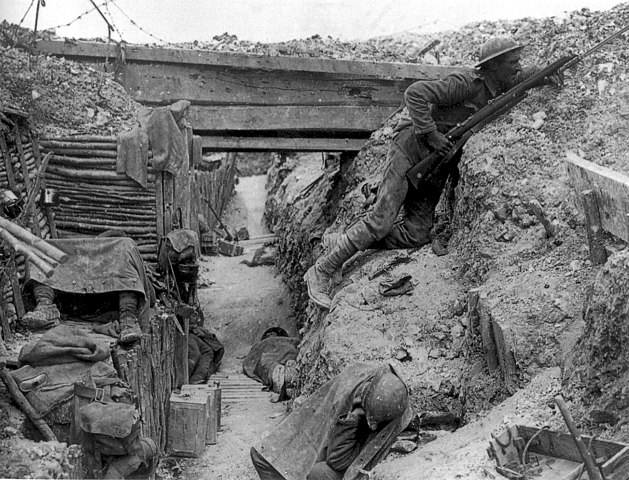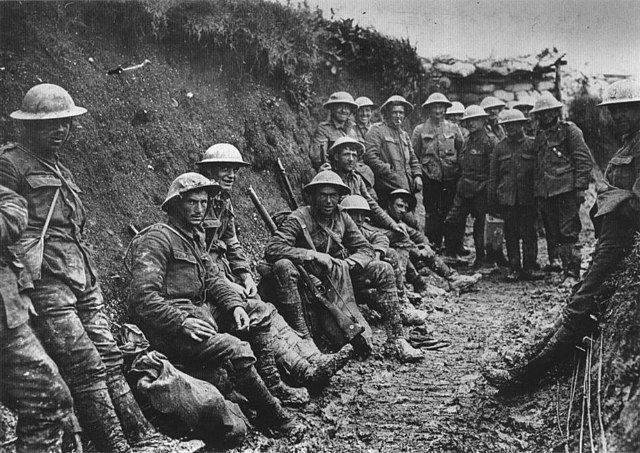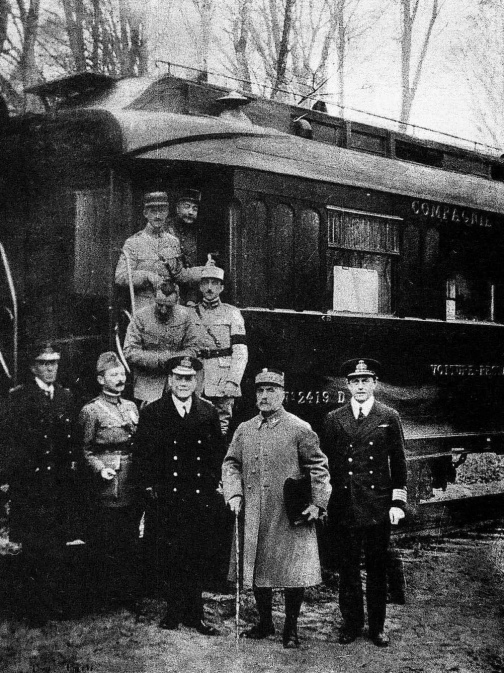The Great War. The War To End All Wars. World War I.
Whatever name it goes by, the conflict which waged in Europe between 1914 and 1918 will go down forever as one of the most pivotal events in human history, rivaled only in magnitude by its successor, World War II.
On November 11th, 1918 after 225 weeks of conflict and an effective breakdown of the central powers, the final armistice agreements were signed and what was, up to that time, the bloodiest conflict in human history ended. Here in America, the day is celebrated as Veterans Day, where we show a great respect towards those who have fought in combat, but worldwide is better known as Armistice Day, and is treated more directly as the day the Great War ended. This was the last in a series of armistices signed during the waning period of conflict, but this would be the one to end all fighting.

Of course, this year was something different – it’s 2018, which means today marked a century since the end of the war. The First World War is somewhat like the later Korean War in that it’s almost forgotten by popular consciousness – much as the Vietnam War would overshadow Korea in the “American Battle Against Communism” the First World War is overshadowed by, naturally, the Second World War. Certainly, the later conflict was far more intense and world-changing than the first, but that in no way means the Great War should be ignored or forgotten.
Even as I write these words I realize I actually, on a whole, know little about World War I, at least when compared to my knowledge of World War II. It honestly amazes me given my love of history, especially that of the 20th century, that I would have such a gaping hole in knowledge regarding this war, but that’s how things go sometimes – there’s no reason I (or anyone else, even you) can’t research and learn more about those 4 years, 3 months, and 2 weeks of bloody conflict.

I’m not oblivious to the general events, though – how an already unstable Europe was sent into chaos by a single assassination, how automatic weapons completely changed the “traditional” style of war, quickly devolving this conflict into seemingly endless trench battles and death charges against the aforementioned frightening new weaponry, and by the time it was all said and done, and the war was over, just how much had changed.

That’s the most incredible aspect of the war to me, the complete change of society. Gone was the Edwardian era – in came the earliest forms of what I would consider “modern” life (a change which would complete as a side effect of the end of World War II.) The map of Europe was changed as effectively all of the empires of continental Europe ceased to be by 1918. Russa became the Soviet Union during, and as a result of, the war, the United States showed it could be a major player in a global scale, and the League of Nations was formed with hopes of stopping such a war from ever happening again, a hope which (obviously) failed.

When the war ended, the world hoped such would never happen again. For 21 years, that was the case, until September 1939 with German attacking Poland and the start of World War II proper. Of course, other incidents (such as Japan’s assault on China) would happen – the time certainly wasn’t conflict free – but global war seemed like a thing of the past. As we know, that wouldn’t be the case.
Something I personally find interesting is the fact that one can, without much effort, chart all of 20th century history and beyond directly back to World War I. Of course, all of history can be linked together as it’s a never-ending chain of events, but the span of history from World War I to today is quite easy to follow, especially given World War II was effectively a continuation of World War I, and set up the United States and the Soviet Union as superpowers, spawning the Cold War. World War I also set about massive changes to the Middle East which would, as you would expect, be continued through World War II – pockets of instability formed by these changes eventually being critical to the chain of events which would spawn so many events, including September 11th, 2001.

I’m getting futher than I should here, though. My point is today is a hell of an anniversary of an event that shouldn’t be as forgotten as it is. Below is a video regarding the end of the war from someone who’s followed the entire 100th anniversary of the war week by week for the past 4 years! I would say you owe it to yourself to check out at least this video to understand just how the war came to an end, but if you have the time and interest his and his teams other content – you would be amazed at what all actually happened during World War I.

https://en.wikipedia.org/wiki/Armistice_of_11_November_1918
https://en.wikipedia.org/wiki/World_War_I
